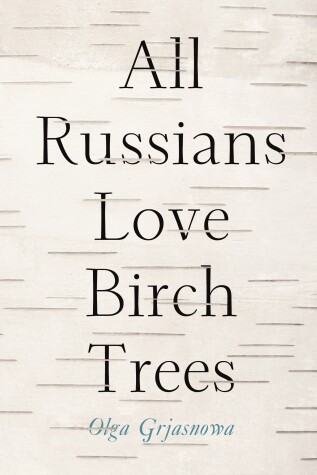Reviewed by Lianne on
All Russians Love Birch Trees is essentially is a slice of life novel (for lack of a better term to describe it), following Masha interact with her family who was forced to flee their homes as borders shift and change, her boyfriend whom she has her ups and downs, her ex-boyfriend to whom she still shares a connection, and various friends. It’s interesting because despite of this close group of people, Masha seems to drift as a person, struggling with scars from the past and the forced uprooted-ness that has essentially coloured the rest of her life. She is able to integrate into different cultures and societies and yet her own sense of identity is unclear at times with no sense of bearing or something to anchor her put.
At the same time this element to Masha is frustrating because she can be a little reckless with these relationships, a little out of step, defensive and closed-off at times. While frustrating, it also makes her character three-dimensional. When tragedy strikes, her grief is clearly palpable.
While I really enjoyed reading the characterisations, reading as Masha struggles to move on with her life, the latter third of the novel moved rather directionless. Perhaps that was intentional but it also left me feeling a little impatient, wondering how it will all turn out. Overall, All Russians Love Birch Trees is a fascinating study of identity, belonging, relationships, the sad consequences of war, and grief.
Reading updates
- Started reading
- 18 December, 2013: Finished reading
- 18 December, 2013: Reviewed
